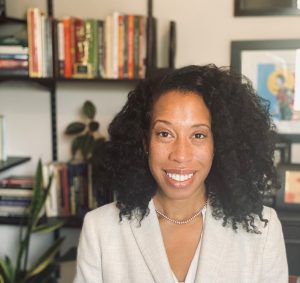Meet the Inaugural CRCE Scholars
July 8, 2022
The Center for Resilient Communities and Environment Scholars Program, led by Philip Berke, director of Center for Resilient Communities and Environment and research professor in the Department of City and Regional Planning, recognizes individuals who have made a significant contribution to the development of the Center for Resilient Communities and the Environment and to its mission, aims, and objectives. Participation as a CRCE Scholar is by invitation from the Center. Scholars are selected based on current and past collaboration with the Institute on interdisciplinary proposals, projects, and scholarship, as well as distinguished accomplishments within the individual’s discipline. Meet our inaugural CRCE Scholars.
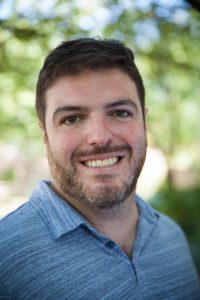 Todd BenDor
Todd BenDor
Distinguished Professor in Sustainable Community Design
Director, Odum Institute
Todd BenDor is the Distinguished Professor of Sustainable Community Design in the Department of City and Regional Planning and the UNC Institute for the Environment. He is also the director of the Odum Institute for Research in Social Sciences. BenDor’s research and teaching focus on improving our understanding of the impacts that human activities and development can have on sensitive ecological and environmental systems. His research uses qualitative, statistical, and simulation modeling methods to improve: 1) the implementation of environmental markets, such as those used domestically to improve water quality and protect and restore wetlands 2) our understanding of the environmental impacts of urban growth and change 3) policies aimed at urban resilience, including floodplain buyouts and flood insurance 4) how we approach and engage in environmental conflict resolution.
Cassandra Davis
Assistant Professor, Department of Public Policy
Describe your research in 6 words.
Assess environmental disruptions in marginalized communities
How did you become interested in your field of study?
A few years ago, I worked on a research project where I traveled to Eastern North Carolina and collected data from schools deemed as low-performing. These schools were situated in high-poverty communities resulting from systemic racism. Hurricane Matthew hit many of the communities I visited months later. When I returned to the communities, I had a visceral reaction to the physical environment where children and adults lived and played. It was disheartening. I could see the inequities marginalized groups faced after the storm, and in some instances, the differences were separated by train tracks. My prior work focused on the school. But I was astonished at how much the communities were impacted and unable to recover from such events. I began to collect informal conversations with residents and heard a consistent storyline that this event, and the response, were nothing new. I then went to state-level leadership and found that little information was made available to these schools and communities. Through the collection of numerous face-to-face conversations, emails, and phone calls, I knew that we [academics, neighbors, family and community] had to do something about this injustice. So I changed my focus to understanding and exploring how environmental disruptions impact marginalized groups. But most importantly, provide practical policy solutions to improve outcomes specifically for marginalized and underrepresented populations.
Tell us about a project you are working on related to resilience/or a project you have worked on with the Institute.
I have the pleasure of working alongside Drs. Philip Berke, Miyuki Hino, Elizabeth Frankenberg, Simona Golda, Evan Johnson, and Nathan Dollar, to name a few. These individuals are champions in their fields, and I am so fortunate to work with and learn from them all. I recently wrapped up a project with Dr. Megan Griffard, where we interviewed Eastern North Carolina residents after Hurricane Florence (2018). Our findings showed that residents exhibited resiliency fatigue and were physically and emotionally exhausted after facing repeated storms.
What makes you feel excited about your research area?
I’m excited about my work because I continue to learn something new every day. I come to the table with a background in Education, Sociology, and History. My viewpoint is different from my colleagues, who are planners, engineers, and economists. However, my perspective allows me to see things that have been missed within the emergency management community. I can have a conversation about equity and social justice because of my passion and training. Now, agencies are thinking about these words, their meanings, and how to apply them.
What is a fun fact about you?
I was a former student-athlete at WFU, so I love a good activity that will get my heart rate up. I also love a good British murder mystery based in a small town (e.g., Midsomer Murders). I would love to get an Airbnb in one of these communities, but I’m also partly afraid that I’ll be involved in a scandalous event. I clearly watch too much.
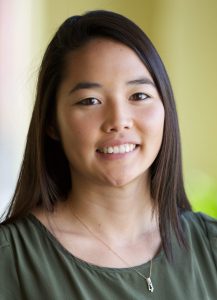 Miyuki Hino
Miyuki Hino
Assistant Professor, Department of City and Regional Planning
Describe your research in 6 words.
Effective and equitable climate change adaptation
How did you become interested in your field of study?
Climate change is pushing us into uncharted territory, and preparing ourselves for a very different future is such a huge challenge. I am drawn to this work because it forces us to rethink many of our assumptions and encourages us to imagine how our communities could change for the better moving forward.
Tell us about a project you are working on related to resilience/or a project you have worked on with the Institute.
I am currently working on a project about floodplain development. When we build new houses and infrastructure in flood-prone areas, we put more people at risk and can make flooding worse in surrounding areas. This project is about identifying how local governments can promote growth in safe areas and limit new building in dangerous areas.
What makes you feel excited about your research area?
I’m excited about collaborating with communities to develop the evidence they need to proactively address their climate challenges.
What is a fun fact about you?
I have played soccer in four different countries.
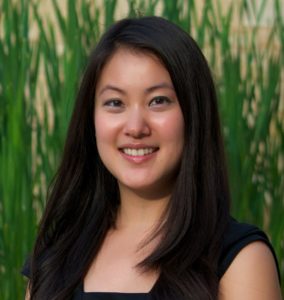 Angel Hsu
Angel Hsu
Assistant Professor, Department of Public Policy
Director, Data-Driven Lab
Describe your research in 6 words.
Data-driven climate and environmental policy analysis.
How did you become interested in your field of study?
My first job out of graduate school was working for the World Resources Institute’s (WRI) Greenhouse Gas (GHG) Protocol Initiative, where I helped develop tools for businesses, organizations, and governments to measure their greenhouse gas emissions. Working in the Global South, I learned how quality data and sound evidence were integral to developing climate and environmental policies, particularly in rapidly urbanizing and industrializing countries, like China, where I worked to help establish WRI’s GHG program in 2008. Chinese government officials and business leaders communicated to me their need for data and tools that could help them understand where they could improve energy efficiency and evaluate emissions. I returned to the US to complete an interdisciplinary PhD and endeavor to use remote sensing technologies and data science to evaluate and improve environmental and climate policies.
Tell us about a project you are working on related to resilience/or a project you have worked on with the Institute.
We are working with local partners, including the Town of Chapel Hill, North Carolina Museum of Life and Science, and the NC State Climate Office, using citizen science and machine learning to map the urban heat island effect in this region. In August 2021, we engaged 40 local volunteers to map five hotspots in Chapel Hill that are among the most vulnerable to rising temperatures and the urban heat island effect. This data collection allows for fine-grained measurements of temperature and humidity, which can be combined into a heat index that measures the effect of these two factors on heat stress. We partnered with the NC Science Festival in April of this year, opening the data to students and the wider community to help hack heat and climate change solutions. We are now working to finish a machine learning model that uses these data to develop a high-resolution heat map for Chapel Hill.
What makes you feel excited about your research area?
The world has a rapidly narrowing window to address climate change. I have two young sons, and they motivate me to help solve the climate crisis. I don’t want them to grow up in an increasingly unhabitable world, with escalating climate-caused catastrophes all because we didn’t do what we could to mitigate them. Climate change is a very worrying issue (so much so that “climate anxiety” is now a growing psychological issue), but I find hope in the fact that we have the technical solutions we need to reduce global emissions today. What is missing is policy. So I’m trying to bridge data science, physical science and political science to spur policymakers to act immediately and to show the world that good policies do make a measurable difference.
What is a fun fact about you?
I just moved back to North Carolina 17 years after I graduated from Wake Forest. I recently got an e-bike and I love zipping around Chapel Hill and making it my main form of low-carbon commuting.
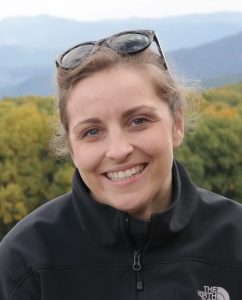 Antonia Sebastian
Antonia Sebastian
Assistant Professor, Department of Earth, Marine and Environmental Sciences, Environment, Ecology and Energy Program (E3P)
Describe your research in 6 words.
Dynamics of flood hazards and risk.
How did you become interested in your field of study?
I was always interested in working internationally and chose to study engineering at Rice University as a pathway to tackling global environmental challenges. As an undergraduate, I got involved in research at the Severe Storm Prediction Education and Evacuation from Disasters (SSPEED) Center. During my sophomore year, Hurricane Ike made landfall near Houston and caused storm surge inundation upwards of 17 feet at the coast. By many accounts, the flooding, and especially the associated human and environmental impacts, could have been much, much worse. My experiences during Ike and the floods that came after it are fundamental to the way I now think about flood recovery and adaptation. As a Fulbright Fellow and Postdoc, I had the opportunity to work in the Netherlands and think about the myriad of ways in which engineers, social scientists, and planners come together to address environmental challenges and how different approaches work in different cultural and geographical contexts.
Tell us about a project you are working on related to resilience/or a project you have worked on with the Institute.
I am currently working with researchers at the Center on Financial Risk in Environmental Systems at the Institute to investigate the cumulative impacts of consecutive flood events on community resilience and recovery in Eastern North Carolina. This project focuses on improving our ability to predict where and how often it floods, as well as how flood damages to residential properties can generate cascading financial risks that extend to communities and the institutions that support them.
What makes you feel excited about your research area?
Floods are inherently complex societal problems that require creative interdisciplinary solutions. My research has provided me with opportunities to meet and work with people from diverse educational and cultural backgrounds, both within the university and outside of it. Most importantly, my research allows me to work towards solutions that impact people’s lives in a direct way.
What is a fun fact about you?
I own more bikes than the average Dutch person.

